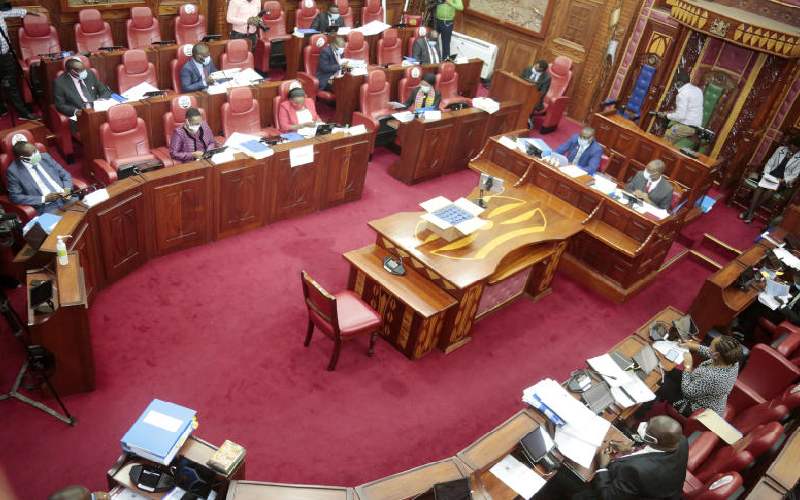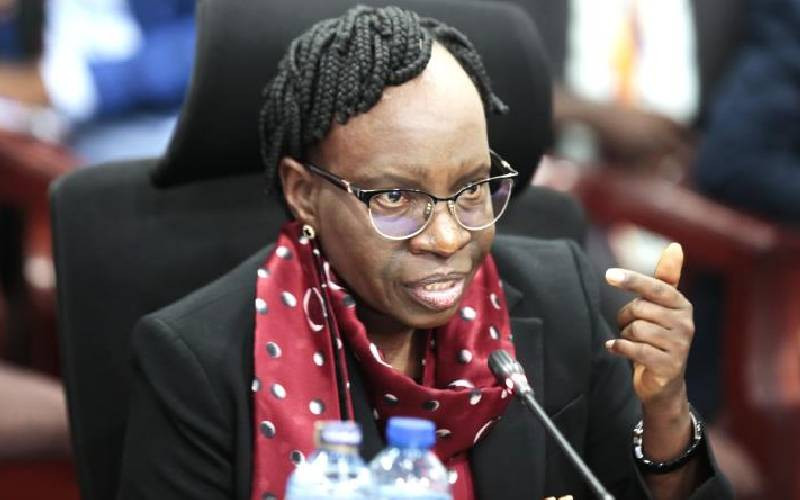
Parliament has consistently failed to master the magical two-thirds number required to pass a constitutional Bill despite threats of a possible dissolution.
Not even a caution from the country’s highest court – the Supreme Court – and a further warning from a High Court judge that the Legislature needed to pass the gender rule law to avoid the risk of being sent home through a petition could do the trick. Both houses of Parliament failed, on four different occasions, to pass the law.
Embarrassingly withdrawn
Though four different bills have been introduced in both houses, they have all found their waterloo on the plenaries of the National Assembly and the Senate, where they have embarrassingly been either withdrawn from being placed to a vote or suffered technical defeats, with the houses failing to raise the requisite numbers to warrant their consideration.
In December 2012, the Supreme Court in its advisory directed the government to implement a progressive approach in ensuring the adherence to the constitutional requirement by August 27, 2015.
However, the 11th Parliament extended that by a year to 2016, which lapsed with nothing happening to honour the constitutional responsibility.
Earlier, in April 2015, then Justice and Legal Affairs Committee Chairman at the National Assembly Samuel Chepkonga introduced two bills, Constitution of Kenya (amendment) Bill, 2015 and the Gender Rule laws (amendment) Bill, 2015 proposing the progressive implementation of the Article 177 on the gender rule.
Both Bills attracted strong opposition in the debate before a majority of the MPs kept off on the voting day of the second reading, failing in the technical requirement that for a vote to be taken, it must be supported by at least two-thirds majority, calling for at least 233 of the 349 MPs. After Chepkonga’s failed bid, former Majority Leader Aden Duale took up the mantle to try salvage the situation. He introduced the Constitution of Kenya (amendment) (no 4 Bill) of 2015 that sought to introduce special seats for women after the elections to bridge the gap and ensure the constitutional requirement was met.
The Bill required this to be done for 20 years on assumption that by that time, the equal playing field would have been set to allow both genders to compete evenly and thus ensure seamless achievement of the requirement.
“By the time, it could even be that more women will be elected than men. The assumption is that we will have an even ground to allow for competition and thus we will not need these special seats,” argued Duale as he lobbied MPs to support the Bill.
However, only 178 MPs came to Parliament forcing the shelving of the vote on the bill yet again. After intense lobbying and with all political leaders including President Uhuru Kenyatta, his Deputy William Ruto and Opposition leader Raila Odinga lobbying legislators to pass the proposed law, the vote scheduled for November 2018 was also lost.
Despite the strong push, MPs defied their bosses. In the presence of Raila and Wiper Leader Kalonzo Musyoka, who physically came to Parliament to show solidarity and rally the legislators to pass the law, MPs kept off, with only 207 being present, a move that saw the Bill lost.
Meanwhile, in the Senate, former nominated MP Judith Sijeny had in 2017 introduced a similar Bill in the House, but it suffered a similar fate as it, too, flopped for lack of numbers to push it through.
Stay informed. Subscribe to our newsletter
 The Standard Group Plc is a
multi-media organization with investments in media platforms spanning newspaper
print operations, television, radio broadcasting, digital and online services. The
Standard Group is recognized as a leading multi-media house in Kenya with a key
influence in matters of national and international interest.
The Standard Group Plc is a
multi-media organization with investments in media platforms spanning newspaper
print operations, television, radio broadcasting, digital and online services. The
Standard Group is recognized as a leading multi-media house in Kenya with a key
influence in matters of national and international interest.
 The Standard Group Plc is a
multi-media organization with investments in media platforms spanning newspaper
print operations, television, radio broadcasting, digital and online services. The
Standard Group is recognized as a leading multi-media house in Kenya with a key
influence in matters of national and international interest.
The Standard Group Plc is a
multi-media organization with investments in media platforms spanning newspaper
print operations, television, radio broadcasting, digital and online services. The
Standard Group is recognized as a leading multi-media house in Kenya with a key
influence in matters of national and international interest.









